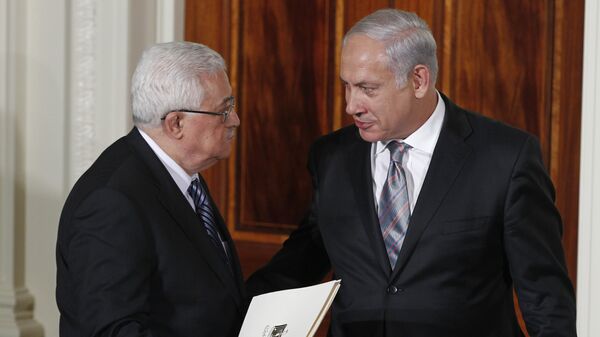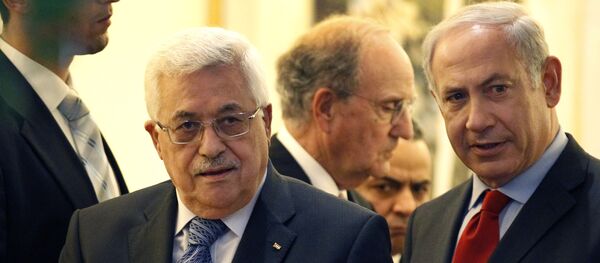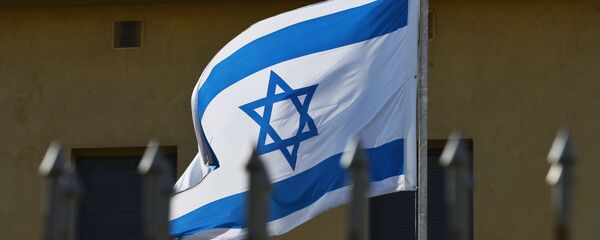In September Israeli Prime Minister Benjamin Netanyahu and Palestinian President Mahmoud Abbas announced their support for Moscow’s effort to mediate any talks on the resolution of Israeli-Palestinian conflict, but laid responsibility on each other for the fact that the meeting had not been agreed yet.
“Our position is that both Israelis and Palestinians should determine the dates for Moscow summit, convenient for both of them, and report them to us,” Shein told RIA Novosti.
He added that a possible resumption of the Israeli-Palestinian negotiations is burdened with a range of serious challenges.
“So when both Israelis and Palestinians have turned to us with a proposal to hold a bilateral meeting between them in Moscow, these proposals were considered by Russian President [Vladimir Putin] and as a result … both sides were informed about Vladimir Putin’s agreement to provide a platform for a meeting between Netanyahu and Abbas,” Shein said.
Relations between Israel and Palestine have been wrecked for decades, as Palestinians have been seeking diplomatic recognition for their independent state on the territories of the West Bank, including East Jerusalem, which is partially occupied by Israel, and the Gaza Strip. The State of Palestine is recognized by 137 countries, including Russia.
The war in Syria has not changed the friendly relations maintained between the Russian and Israeli armed forces, as no incidents have occurred that could undermine these relations, according to Shein.
"Regarding the danger of incidents, the Russian armed forces and the Israel Defense Forces are on friendly terms with one another. This has been stated by both our countries as far back as several years ago. Since then, there have been no situations, including the start of the crisis in Syria, which could have led to either the Russian or Israeli sides changing this assessment," Shein told RIA Novosti.
Israel was one of the first countries to set up communications with Russia in an effort to prevent accidents and dangerous incidents throughout Russia's counter-terrorist campaign in Syria.
"[The channel] has many manifestations, but it overall comes down to a direct communication channel set up between the defense ministries of the two countries. It allows for issues of mutual interest in the context of the situation in Syria to be discussed rapidly," Shein added, stressing that the Russian-Israeli relationship is exemplary of what should be done when resolving regional issues while respecting national interests.
The Syrian civil war broke out in 2011, when armed opposition groups rose up against the government of President Bashar Assad. The conflict has since grown in complexity and has given rise to a number of jihadist terrorist groups inside Syria. Russia began its anti-terrorist aerial campaign in September 2015 at the request of Assad.



